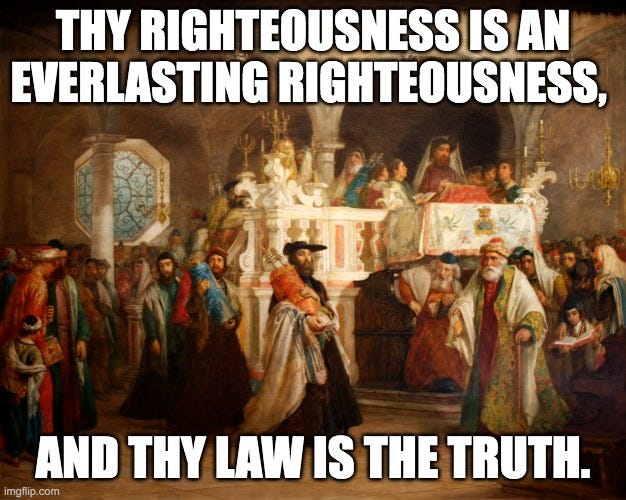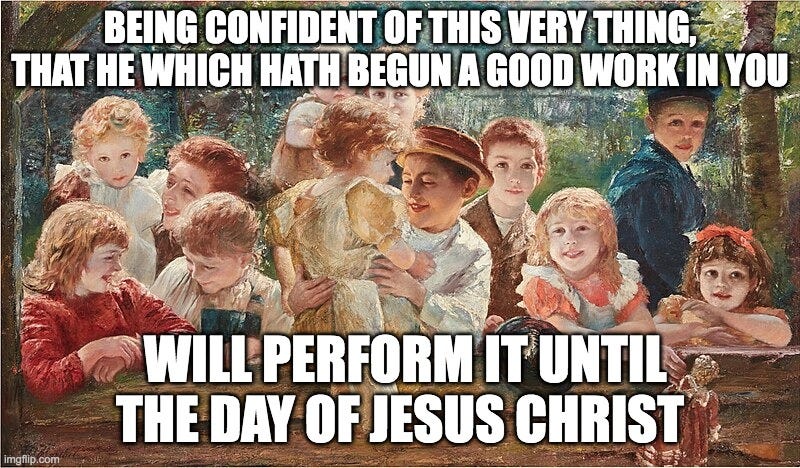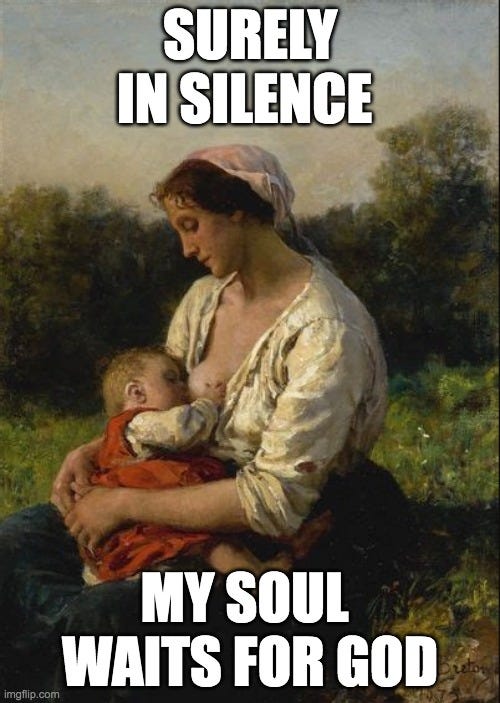Who is God? What is He like?
Introduction
This post is written as part of an exchange with Addam as a part of a new series of letter exchanges. This particular exchange began in reaction to a post explaining how he didn’t believe in God, and hated him. At least that is the way I read it.
In the comments we had an exchange and decided that my next post, ie this post, should be on the nature of God. Because if you don’t know who God is, or at least who He is proposed to be, then railing against Him can get a bit confusing.
This post is NOT intended to be a defense of God, or an argument for God, or even an argument in favour of one particular conception of God. It is merely meant to provide an explanation in order to make future discussions more meaningful. To help everyone understand what is being discussed.
I’ve included some references, but most of what I post below is well known theology and without any real dispute. They are things that Christians have always believed.
Omni-Owner
When describing God is it normal to use a whole series of words, which begin with the prefix “omni”. Meaning ‘all’. Thus ‘omniscient’, meaning ‘all-knowing’. Or ‘omnipotent’, meaning ‘all-powerful’.
But there is an attribute of God that I have heard described, but I do not know the ‘omni’ word for. It is that God is all-owner, or perhaps, all-owning. The doctrine states that the creator God is the fundamental and first owner of all things. Our lives are His, our property is His, our relationships are His… all that we are and do belongs in the first instance to Him.
In the end, every molecule of the universe was created by God, and is owned by him.
Psalm 50:7-15; I Cor 15:1-28; Psalm 2; Eph 1:11-12, 22, Hebrews 1:2, 2:6-8
Omni-Benevolent
Another attribute of God that is very relevant to our current exchange, and still more relevant to hundreds of other exchanges that go on every day, is that God is ‘omni-benevolent’. Or, to put it another way, He is the definition of morality. Of right and wrong. Of good and evil.
What this means is that we do not, indeed cannot, have some definition of right and wrong that we bring to the table and then ask oursleves, “Does God conform to this or not.” But rather, does out definition conform to God.
Ex 33:19, Psalm 25:7, Psalm 119:9; Ecc 3:17; I Sam 26:23; Acts 17:3
Omni-Potent
Except for certain logic puzzles pretty much everyone is good with the ‘all powerful’ part of God’s definition. That all the power that exists, or ever could exist, comes from and belongs to God.
Until it comes time to argue. Then it seems that both sides tend to forget that every molecule in the entire universe (and all possible universes) owes its existence, and its power, to God.
Rev 19:6; Matt 28:18
Omni-Scient
Another attribute of God that seems understood, until the mouth opens, is that of His ‘all-knowledge’. God not only created every molecule, He not only controls every molecule, but he knows about every molecule. As well as every thought in your head.
Psalm 104:24; Job 38-41; Matt 4:4
Omni-Purpose
OK, so I made that name up, but the doctrine is standard. Every molecule in the universe exits to fulfils God’s purposes for it.
Hebrews 2:10
Omni-Creator
God created everything. Pretty standard stuff, but with a lot of depth of meaning. Every molecule that exists exists because He created it. For his purposes.
John 1, Genesis 1-2
Omni-Stalwart
Or ‘unchangeable’. God can’t be changed by circumstances, He is in control of them.
Job 38-41
Omni-Jurisdictional
It is a pretty common thing, when people are arguing about God, for someone to say ‘your God’. This might make for interesting dialogue, but we do need to remember it doesn’t make sense. If the God that Christians believe exists, then He isn’t ‘my God’ or ‘your God’ but ‘the God’. The only true God, that reigns over everything else that could be called God.
Psalm 9:7-8
Omni-Present
God sees everywhere, and is everywhere. Every molecule.
Psalm 139
Immortal
Neiztche might have had a good line, but it was an illogical one. God is not dead, because God cannot die. Either He never existed, or He always existed.
1Timothy 1:17
Sustainer
God not only creates every molecule in the universe, He sustains them. Without His active work they would cease to exist.
Nehemiah 9:21
Salvation
God is the only means of salvation. There is no other name by which we can be saved.
Acts 4:10-12; Acts2:21; Romans 5:8-11
Compared to us
And then, to make it clear, all of those attributes exist in opposition to us. God is Creator, we are created. We are sinners, He offers salvation.
Romans 9:20-21
Conclusion
As at the beginning, I would like to emphasise that this post was not written in order to try to argue for God, or convince people of His existence. Or even to convince them of one particular conception of God vs another.
I write this post to try to eliminate certain naive and foolish ideas about God… what He is capable of, and how things affect Him. To make it clear that to say ‘virgin birth is impossible’ is a silly statement unless you add ‘without God’. That saying ‘God is unfair’ only make sense if you equivocate between the ideas of what God is in the middle of the sentence.
Thank you for reading Von’s Substack. I would love it if you commented! I love hearing from readers, especially critical comments. I would love to start more letter exchanges, so if there’s a subject you’re interested in, get writing and tag me!
Being ‘restacked’ and mentioned in ‘notes’ is very important for lesser-known stacks so… feel free! I’m semi-retired and write as a ministry (and for fun) so you don’t need to feel guilty you aren’t paying for anything, but if you enjoy my writing (even if you dramatically disagree with it), then restack, please! Or mention me in one of your own posts.
If I don’t write you back it is almost certain that I didn’t see it, so please feel free to comment and link to your post. Or if you just think I would be interested in your post!
If you get lost, check out my ‘Table of Contents’ which I try to keep up to date.
Thanks again, God Bless, Soli Deo gloria,
Von
Links
The Abolitionist
I’m against Child Murder.










And given that we’re about 12 articles and comments deep in various threads, if there’s a specific thing you’re thinking of you might do well to post a link here
Sorry, I didn’t realize you’d posted this yet until today, so just catching up now. I appreciate you writing this as clarification on a larger scale; however, to our specific conversation, I’ll note that none of this was new to me. As you said, it’s all pretty standard.
Your description of omni-benevolent however is incorrect. I know that Christians understand God as the definition of morality, but that specific point is different from omni-benevolence. Benevolent means good. The point about “Omni-benevolence” is the reason there are enormous and unending debates - as I mentioned - about why an “all-good” god allows evil in the world. There are ways to suggest that, because God is all good, that the evil is somehow actually a part of that goodness, and furthermore that because he is good morality can be defined through him, but those are simply interpretations of the implications of the word, not it’s actual definition. My real point being: interpretations other than yours may also be valid.
The reason people - and myself - say “your God” is to emphasize the fact that, even though you believe your god is “The God” that doesn’t actually make it true. Other people believe in other gods, and theirs are just as likely to be “the real god” as yours is. So when we say “your god”, it’s not a silly misunderstanding, it’s a point being made through linguistic choices.